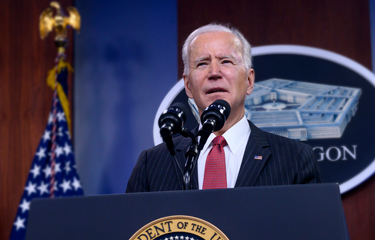The administration of U.S. President Joe Biden announced on 21 March that it has ordered U.S. Secretary of Commerce Gina Raimondo to consider creating a new marine sanctuary that would protect roughly 770,000 square miles of ocean.
The new sanctuary would be created around the Pacific Remote Islands using the National Marine Sanctuaries Act, and according to a release from the administration is intended to continue Biden’s commitment to conserving 30 percent of lands and waters by 2030 – commonly referred to as the “30 by 30” plan. The full conservation area would represent the largest sanctuary of its kind in the world, and would include the existing Remote Island Marine National Monument and “currently unprotected submerged lands and waters.”
“Such protections would encompass areas unaddressed by previous administrations so all areas of U.S. jurisdiction around the islands, atolls, and reef of the Pacific Remote Islands will be protected,” a White House press release said.
Advocates for the protection said the waters are home to endangered species, and U.S. Representative Ed Case (D-Hawaii) also came out in support of the effort.
"These waters are among the last pristine marine environments on our Earth, and also the most-fragile," Case said in a news release. "Our world's oceans are at mortal risk, a breaking point precipitated by the unsustainable overfishing and other resource extraction, debris and land-based pollution, exacerbated and compounded by the devastating and pervasive marine effects of climate change."
Local conservation leaders with the Pacific Remote Islands Coalition also applauded the move, saying it will protect “some of the last healthy, wild ecosystems in the Pacific Ocean.”
“Mahalo to President Biden for his support in protections of the Pacific Remote Islands,” Conservation Council for Hawaii Executive Director Jonee Peters said in a release. “With his support, this action ensures a healthy marine ecosystem of native species, corals, seabirds, and all of the marine ‘ohana that support the perpetuation of traditional voyaging practices in Oceania.”
The Western Pacific Regional Fishery Management Council, however, is opposed to the new monument, citing studies that indicate marine sanctuaries that are closed to all fishing don’t actually benefit the environment in any meaningful way.
A paper, published by the council’s scientific and statistical committee (SSC), reviewed a 2023 study of the Phoenix Islands Protected Area in Kiribati that found MPAs “do not have discernible conservation benefits for Pacific skipjack and bigeye tuna,” a WPRFMC release said.
“Skipjack and bigeye tuna have a wide distribution in tropical and sub-tropical waters of the Pacific, and are capable of spawning anywhere the water temperature is greater than about 25 degrees Celsius,” Pacific Community Chief Scientist John Hampton said. “Their larvae drift in the surface water currents, and as they grow, they are able to move widely throughout the region. So closing off one part of the area does not offer much, if any, protection to species like this.”
Closing areas to fishing doesn’t slow or stop fishing effort – it just makes it move, he said.
“When areas like the PIPA are closed to fishing, we tend to see the vessels that would have fished there simply move their activities to adjacent areas, which again limits their conservation effectiveness,” Hampton said.
Another SSC member, Ray Hilborn, has been a vocal critic of marine protection areas, and has said in the past that most studies on them are flawed and make wrong assumptions about marine fishing effort.
Biden’s announcement gives Raimondo 30 days to initiate a new designation process for the islands.
Photo courtesy of BiksuTong/Shutterstock







